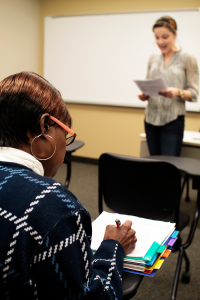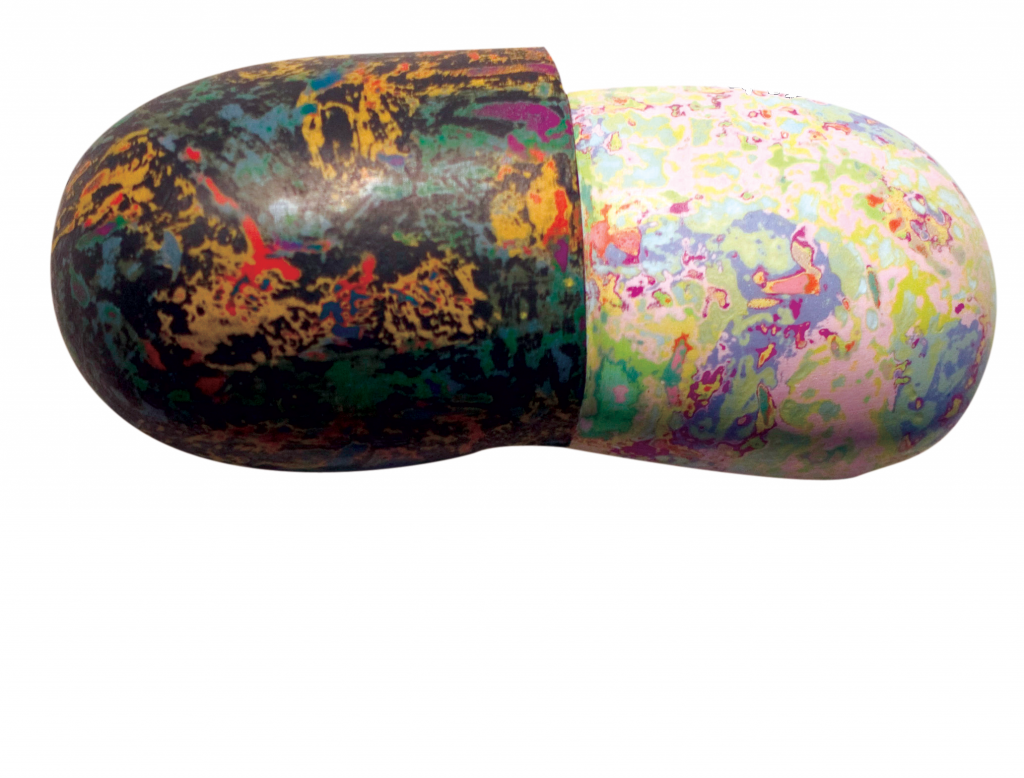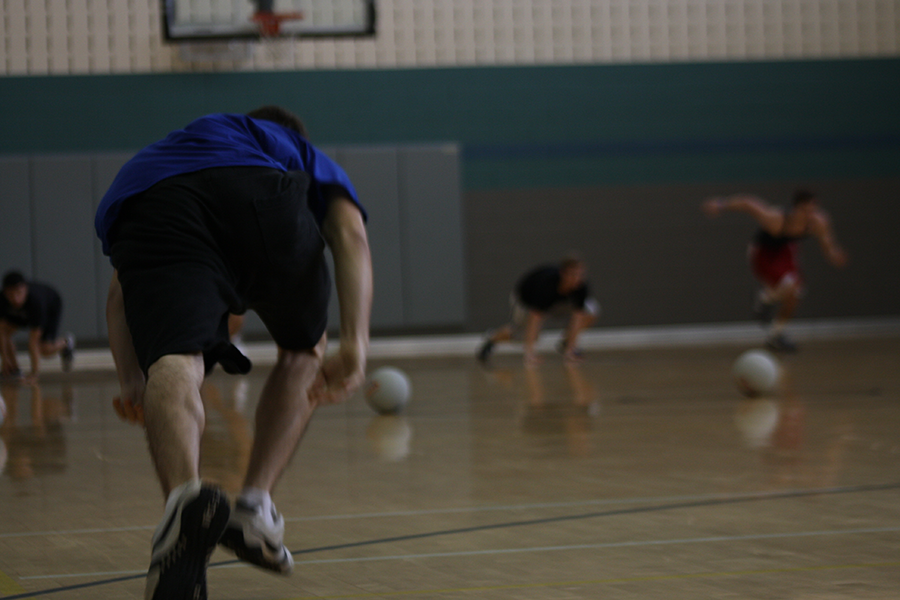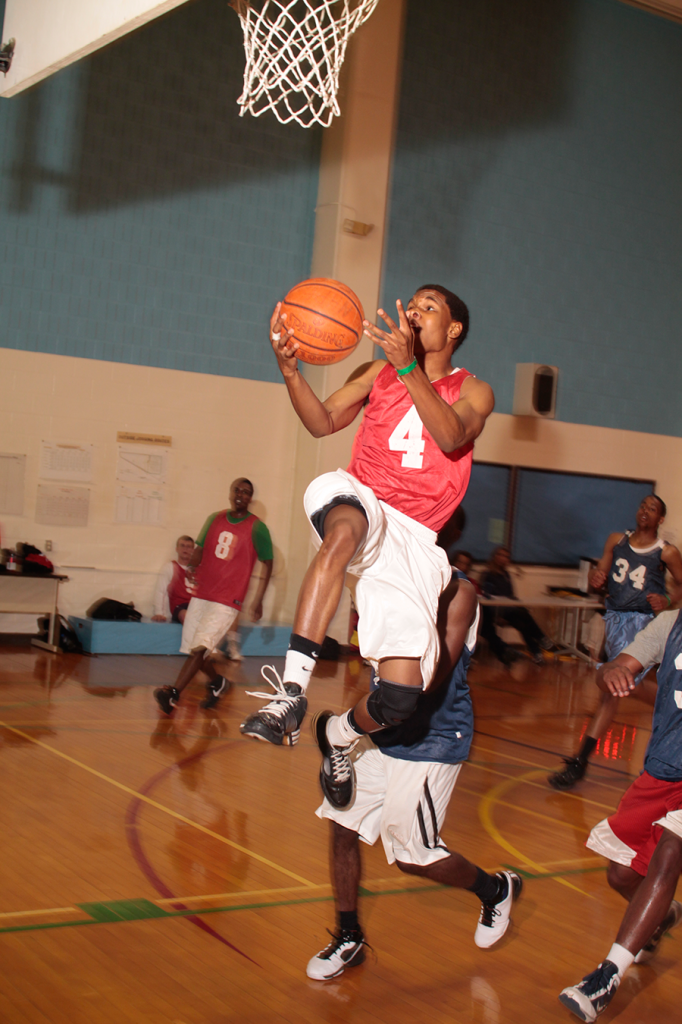By Tristian Evans/south news editor
TCC has used learning communities for several years to help college students adjust to the rigors of higher education. For the last two years, South Campus has been using the Pathways and Voyages in Education community, also known as PAVE.
The program focuses on building students’ academic success by having them attend classes as a group, allowing them to use each other as a resource. It also helps students build a relationship with their professors and feel comfortable in a college classroom.
“Learning communities show great promise in helping students succeed in their courses and to reach their goals in higher education,” said South Campus dean of humanities Judith Gallagher.

Casey Holder/The Collegian
PAVE began after TCC and four other community colleges received a grant from the Texas Higher Education Coordinating Board.
The grant was broken into two parts, the first being the Developmental Education Demonstration Project, which also funds the ACCESS learning community on NE Campus, and the Adult Basic Education Innovation Grant. The money was to explore academic innovations that would lead to a higher rate of student success.
The students enrolled in PAVE are either first-time college students or non-traditional students returning to school after many years. These students all scored within a certain range on their Accuplacer tests and need developmental courses in areas such as math, reading and writing.
In addition to developmental courses, students will also take Student Success and Psychology of Adjustment classes, which will help them strengthen study skills and human interactions. Not only do students attend classes together, the things they learn in one class carry over into the next.
Currently, the courses are being taught around the book The Freedom Writers Diary. The students read chapters of the book in their developmental reading class, write essays about the characters in their developmental writing class and then analyze the lives and emotions of the characters in their psychology class.
At the end of the semester, the students will participate in an online chat with one of the real-life characters from the book. The students will plan the event, calculate the budget and create invitations.
“When they go out into the world, [they’ll have] a set of skills and experiences they didn’t have before,” Gallagher said, “a set of skills for beyond school.”
Gallagher said the group dynamic helps them build confidence and feel engaged within the classroom. Data has shown that when students have some
kind of extracurricular connection to a school, they are more likely to do well.
Not only is PAVE engaging its students within the classroom but outside of it as well, she said.
Psychology of Adjustment professor Staussa Ervin is heading a book club for PAVE students.
“It’s reinforcing reading and the idea that reading is pleasurable, [and it] creates a sense of community,” she said.
Ervin also thinks the selected book The Greatest Salesman in the World by Og Mandino, offers lessons in succeeding in life by using the analogy of a salesman. It offers lessons that the students can apply to their everyday lives.
“I will persist until I succeed,” she said.
“You read [the lesson] continuously for 30 days, so it becomes a habit. So at some point, hopefully, [they] transition from reading it, to believing it, to living it.”
Ervin said at each meeting, they will discuss how a particular lesson applies to them and what steps students can take to begin their personal change process.
“Reinforcing the idea that I take responsibility for not only my education but my life,” she said.
The book club selection along with all textbooks the students need for the programs are provided for them.
Faculty coordinator Nancy McKenzie is pleased with how the program has worked out so far.
“The students have responded well because they get to interact with a cohort of their peers and also their instructor,” she said.
She believes it provides them with a strong foundation that will lead to self-sufficiency in the future.
While Gallagher is also pleased with the success the program has had so far, there are still some challenges.
“The biggest challenge so far is to help students see how beneficial [PAVE] would be,” she said. “When you don’t know what something is, you’re cautious.”
Former PAVE student Jonnitha Spriggins enjoyed her experience in the program.
“It was a wonderful experience,” she said. “It’s a good program for those who are returning to school and those just getting out of high school.”




















